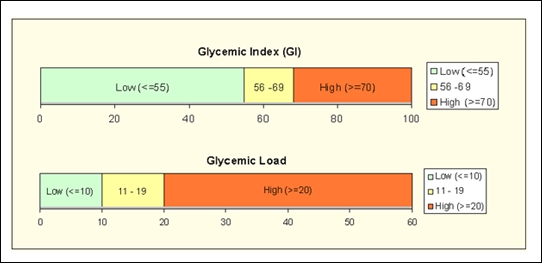The Evidence for Reducing Carbohydrates
Dr. Sue Shephard experienced regular and debilitating intestinal gas and because of that, her research led to her coining the term and development of the FODMAP diet in 1998. FODMAP stands for Fermentable Oligosaccharides, Disaccharides, Monosaccharides and Polyols. These short chain carbohydrates are incompletely absorbed in the gastrointestinal tract and then become easily fermented by gut bacteria. The resulting gas causes severe bloating and IBS symptoms. FODMAP’s also increase fluid to the large intestine and can cause diarrhea.
Others have had similar observations about carbohydrates. Elaine Gottshall wrote a book called Breaking the Vicious Cycle even earlier in 1994, after her daughter who was diagnosed with Ulcerative Colitis in the 1950’s was saved from the surgical removal of her large intestine. By following the diet prescribed to her by Sidney Haas M.D., her daughter recovered and Elaine went on to attain degrees in biology, nutritional biochemistry, and cellular biology. Her diet called The Specific Carbohydrate Diet, only allows monosaccharides. Disaccharides and polysaccharides are not allowed.
Dr. Natasha Campbell-McBride developed The GAPS diet. McBride was a Russian Neurologist and Neurosurgeon before moving to the UK and getting a second postgraduate degree in Human Nutrition. GAPS, stands for Gut and Psychology Syndrome, about the associated neurological and psychological effects from excess carbohydrates.
I would be remiss to leave out Dr. Robert Adkins M.D., who adhered to a similar philosophy that predates all of the above researchers. Adkins followed the low carbohydrate diet recommendations of Dr. Alfred W. Pennington to help him lose weight in the mid 1960’s. Adkins went on to author over a dozen books and host a popular radio show for over a decade focusing on weight loss, blood sugar, and the cardiovascular benefits of a low carbohydrate diet. In a similar vein, Dr. Mark Hyman recently authored a book called Eat Fat Get Thin based on over 1000 scientific studies on the advantages of reducing carbohydrates.
Dr. Norm Robillard said there is research showing it takes just 30 grams (just over an ounce) of undigested carbohydrate to produce 10 liters of hydrogen gas. His Fast Tract app applies a formula that incorporates the amount of carbohydrates plus the glycemic index to equal a fermentable potential carbohydrate score. This would benefit someone with G.E.R.D. (Gastric esophageal reflux disease).
Similarly, Professor Jennie Brand-Miller at the University of Sidney, shows the difference between the glycemic index and glycemic load. Glycemic index is the measure of how rapidly a carbohydrate will turn to sugar. The higher the number, the higher the response in blood sugar. Glycemic load takes into account the amount of carbohydrate in the food. Glycemic index is based on the glucose index. Glycemic load is the glycemic index divided by 100 multiplied by its available carbohydrate content (carbs minus fiber) in grams.
Let's take a single apple as an example. It has a GI of 40 and it contains 15 grams of carbohydrate.
GL = 40 x 15/100 = 6 g
What about a small baked potato? Its GI is 80 and it contains 15 g of carbohydrate.
GL = 80 x 15/100 = 12 g
The example above shows the difference between an apple and a potato. Based on this example we can deduce that the potato has a higher glycemic load and will likely have a greater fermentation potential than the apple.

Are ALL Carbohydrates Bad?
Implicating carbohydrates as a foe for a broad spectrum of common health ailments, would be easy because unlike proteins and fats, there really is no such thing as a carbohydrate deficiency. However, we do need carbohydrates and fiber to feed the good bacteria in our intestinal tract and there have been many cases of people with chronic health problems helped when they went to a plant based diet that is higher in carbohydrates. Microbiota: is the term used to describe the 100 trillion bacteria made up of over 1000 species in our digestive system. For the most part, our microbiota diversity has been under stress from exposure to antibiotics, stress, alcohol, and high sugary foods and many people think this may be one of the underlying causes of carbohydrate intolerance.
Much is being learned about the different species of bacteria in our gut. Some bacteria produce CO2 (carbon dioxide), some, Archaea produce CH4 (methane gas) and some Faecalibacterium Prausnitzii, produce important anti-inflammatory chemicals such as Butyrate. Research is pointing out that quantity and quality of carbohydrates is important and that this is highly individualized. The long term solution to handling carbohydrates appears to be somewhat genetically based, and dependent on physical activity. In fact, carbohydrate loading for a few days prior to an endurance event is an effective strategy to improve performance. Chewing your food thoroughly to secrete as much amylase from the saliva can help digest the amylose in carbohydrates, eating fermented foods such as raw sauerkraut, and taking various strains of probiotics to repopulate the gut microbiome are also important.
Check out this FODMAP chart of low and high fermentable carbohydrates
http://www.ibsdiets.org/wp-content/uploads/2016/03/IBSDiets-FODMAP-chart.pdf
Look up the Glycemic Index of your foods here:
www.glycemicindex.com/foodSearch.php